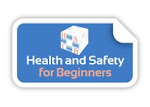Government “sees sense” on health and safety myth-making
An epidemic of excuses wrongly citing health and safety is needlessly curtailing people’s personal freedoms, Employment minister Chris Grayling announced today (24 August).
In what has been described as the Government finally “seeing sense” the minister conceded that it is misconceptions about and misapplication of health and safety legislation – rather than the laws themselves, or health and safety professionals – that have contributed to its negative image.
Speaking after the publication by the HSE on its website of the top ten most bizarre health and safety bans – including the closure of Murray Mount during this year’s Wimbledon Championships – Mr Grayling said: “We have seen an epidemic of excuses wrongly citing health and safety as a reason to prevent people from doing pretty harmless things with only very minor risks attached. This has to stop. The law does not require this to happen – people must be encouraged to use their common sense.
“Health and safety laws exist to provide important safeguards against people being seriously injured, or made unwell at work and should not hamper everyday activities. These regulations are intended to save lives, not stop them.”
The minister went on to blame “middle managers in councils and companies [hiding] unpopular decisions behind health and safety legislation” for diluting common sense and urged people to challenge such dubious decisions, wherever possible.
His statement comes a week after the prime minster, David Cameron, also acknowledged that health and safety rules are often “lazily trotted out” to justify all sorts of wrong-headed actions.
IOSH was delighted that the Government has “seen sense”, saying it represented “a genuine success for the Institution’s campaign of lobbying”. Added its head of policy and public affairs, Richard Jones: “We’re delighted that the Government has listened and is joining our fight to tackle the health and safety myths that have sadly tarnished real health and safety.“We think this statement by the minister represents an important watershed in putting the record straight about real health and safety – highlighting that it’s only when it’s misinterpreted and misapplied that there are problems.
“Good health and safety is about saving lives, supporting business and enterprise, and sustaining the economy. We think better education and government promotion of the sensible steps the law really requires should help debunk all this nonsense once and for all.”
The Hazards Campaign said Mr Grayling’s stance “undermines the whole basis for his attacks on workplace health and safety” and called on him and the Government to “come clean” and admit their “previous attacks on workplace health and safety provisions are based on ideology rather than the cost of health and safety failures to society, and who is responsible”.The TUC agreed, with general secretary Brendan Barber saying "the problem is not employers using health and safety as an excuse but the government using myths like this as a reason for cutting back on regulation, enforcement and guidance”.
To read more stories publicised in the national media of decisions taken on dubious health and safety grounds, visit SHP’s ‘elf and safety watch’ section here.






